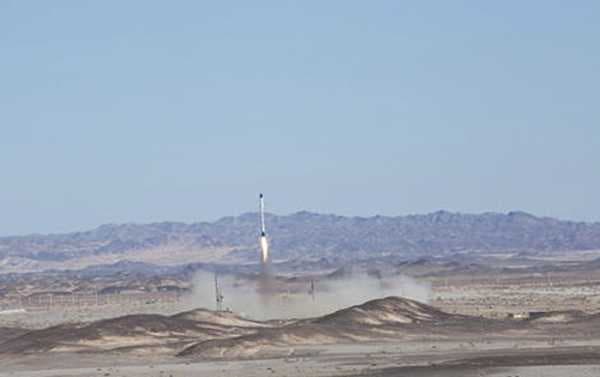
WASHINGTON (Sputnik) – Earlier in January, US State Secretary Michael Pompeo warned that if Tehran went ahead with its plans to carry out the space launches in coming months, Iran would face more economic and diplomatic pressure.
Iran’s failed attempt to place a satellite into orbit with a three stage rocket demonstrates the Islamic republic’s intent to develop missiles able to reach as far as Europe, Michael Pompeo said in a statement on Tuesday.
Earlier in the day, Iran attempted to launch a satellite into orbit but the third stage of the rocket failed to provide enough speed to reach the orbit, Iranian Information and Communications Technology Minister Mohammad Javad Azari Jahromi said.
Iran plans a second satellite launch in the coming days in what the nation claims is a space exploration program, while claiming that rocket launches do not violate the Security Council resolution.
Iranian Foreign Minister Mohammad Javad Zarif has insisted that the country’s space program did not violate the resolution, related to the country’s nuclear program.
Iran has recently made a significant progress in its space program with the launch of its Simorgh Satellite Launch Vehicle in July 2017. The United States, the United Kingdom, Germany and France in a joint statement condemned the launch, saying it contravened the UN Security Council resolution.
Unanimously adopted on 20 July 2015, United Nations Security Council Resolution 2231 endorsed the international nuclear deal, formally called the Joint Comprehensive Plan of Action (JCPOA). The resolution laid out a plan for removing the UN sanctions on Iran in exchange for strict monitoring of its nuclear program, which the country insists is peaceful.
The United States withdrew from the JCPOA in May 2018, and Tehran has since then accused Washington of violating the UNSC resolution. Iran has also denied that its missile program violates the resolution. Washington, in turn, has reimposed its sanctions against Tehran that had been lifted under the JCPOA agreement. The first package of the US restrictions came into force in August. In early November, Washington imposed new sanctions targeting core sectors of Iran’s economy.
Following last year’s ministerial meeting on the sidelines of the UN General Assembly, the United Kingdom, Germany, France, China, Russia and Iran have announced that the European Union would establish a financial mechanism, known as Special Purpose Vehicle (SPV), to enable trade with Tehran, bypassing Trump administration’s reimposed restrictions.
Washington Says US Sanctions May Help Force Iran to Scale Back Presence in Syria
Last week, Michael Pompeo said Washington was planning to tighten sanctions on Iran. However, Pompeo stressed the United States was ready to “open a new chapter” in relations with the Islamic Republic once it meets the 12 demands that the secretary outlined during an address in May.
Those demands include allowing unlimited international inspections of Iran’s nuclear program, halting Tehran’s support for Hezbollah and other militant groups in the region, withdrawing all Iranian military forces from Syria, and releasing all US citizens being detained in the Islamic Republic, among other steps.
Tehran, in its turn, has responded to those demands by listing its own to European states.
Sourse: sputniknews.com






